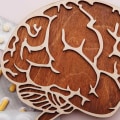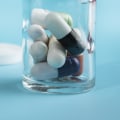Over-the-counter substances that can improve brain performance or concentration, such as caffeine and creatine, are also considered nootropics. They don't treat diseases, but may have some effects on thinking, memory, or other mental functions. Another type of prescription nootropic is modafinil (Provigil). It is approved by the FDA to treat narcolepsy, sleep apnea and shift work disorder, but some studies suggest that it may help with learning and memory in healthy people.
Modafinil appears to be safer than other types of stimulants, but more research is needed. Here's a look at the 14 best nootropics and how they improve performance. Caffeine is the most widely consumed psychoactive substance in the world (. Caffeine works by blocking adenosine receptors in the brain, making you feel less tired (.
A low to moderate caffeine intake of 40 to 300 mg increases alertness and attention and decreases reaction time. These doses are especially effective for people who are fatigued (4, 5,. Caffeine is a natural chemical that increases alertness, improves attention and reduces reaction times. L-theanine is a natural amino acid found in tea, but it can also be taken as a supplement (.
Several studies have shown that taking 200 mg of L-theanine has a calming effect, without causing drowsiness (8,. Taking just 50 mg, the amount found in about two cups of brewed tea, has been found to increase alpha waves in the brain, which are related to creativity (. L-theanine is even more effective when taken with caffeine. For this reason, they are often used together in performance-enhancing supplements.
In addition, both are found naturally in tea (7,. L-theanine is an amino acid found in tea that can increase the feeling of calm and may be related to greater creativity. Its effectiveness is even greater when combined with caffeine. Creatine is an amino acid that the body uses to produce proteins.
After consumption, creatine enters the brain, where it binds with phosphate, creating a molecule that the brain uses to quickly feed its cells (1.This increased energy availability for brain cells is related to improved short-term memory and reasoning skills, especially in vegetarians and stressed people (12, 13, 1) Studies show that it is safe to take 5 grams of creatine a day without any negative effects. Higher doses are also effective, but there is no research on their long-term safety (1.Creatine is an amino acid that can improve memory and reasoning skills in the short term). It is more effective in vegetarians and stressed people. Doses of 5 grams per day have been shown to be safe in the long term.
Bacopa monnieri is an ancient herb used in Ayurvedic medicine to improve brain function. Several studies have found that Bacopa monnieri supplements can speed up information processing in the brain, reduce reaction times and improve memory (16, 17, 1.Bacopa monnieri contains active compounds called bacosides, which protect the brain from oxidative stress and improve signaling in the hippocampus, an area of the brain where memories are processed (1.The effects of Bacopa monnieri are not immediately felt. Therefore, doses of 300 to 600 mg should be taken over several months for maximum benefit (20, 2). Bacopa monnieri is an herbal supplement that has been shown to improve memory and information processing when taken for several months.
Rhodiola rosea is an adaptogenic herb that helps the body manage stress more effectively. Several studies have found that Rhodiola rosea supplements can improve mood and decrease feelings of exhaustion in anxious and highly stressed people (22, 2.Taking small daily doses of Rhodiola rosea has been shown to reduce mental fatigue and increase feelings of well-being in college students). during periods of stressful exams (2.Rhodiola rosea is a natural herb that can help the body adapt to periods of high stress and reduce associated mental fatigue. Taking a single dose of 200 to 400 mg of Panax ginseng has been shown to reduce brain fatigue and significantly improve performance in difficult tasks, such as mathematical mental problems (25, 26, 2.However, it is not clear how Panax ginseng stimulates brain function).
It may be due to its strong anti-inflammatory effects, which help protect the brain from oxidative stress and improve its function (2). Some long-term studies have found that your body can adapt to ginseng, making it less effective after several months of use. Therefore, more research is needed on its long-term nootropic effects (2.Ginkgo biloba supplements have been shown to improve memory and mental processing in healthy older adults when taken daily for six weeks (30, 31, 3). Taking Ginkgo biloba before a very stressful task also reduces stress-related high blood pressure.
pressure and decreased levels of cortisol, a type of stress hormone (3) It is hypothesized that some of these benefits may be due to increased blood flow to the brain after supplementation with Ginkgo biloba (3). While these results are promising, not all studies have shown beneficial effects. More research is needed to better understand the potential benefits of Ginkgo biloba on the brain (3). Studies show that nicotine may have nootropic effects, such as improved alertness and attention, especially in people with a naturally impaired attention span (36, 3).
function. In addition, chewing nicotine gum is related to better writing speed and fluidity (3.However, this substance can be addictive and lethal in high doses, so caution should be exercised (3.Animal studies have shown that Noopept accelerates how quickly the brain forms and recovers memories by increasing levels of derived neurotrophic factor (BDNF), a compound that promotes brain cell growth (42, 43, 4). Human research has found that this smart drug helps people recover more quickly from brain injuries, but more studies are needed to understand how it could be used as a nootropic in healthy adults (45, 4.has been shown to improve memory in people with age-related mental impairment, but does not appear to have much benefit in healthy adults (47, 4.During the 1970s, some small, poorly designed studies suggested that piracetam may improve memory in healthy adults, but these findings have not been replicated (49, 50, 5.similar in structure to piracetam and Noopept and helps the brain recover from various injuries such as stroke, epilepsy and trauma (52, 53, 5.A study in rats found that phenotropil slightly improved memory, but research to support its use as a smart drug in healthy adults is not available (5.trade name Provigil, modafinil is a prescription drug often used to treat narcolepsy, a condition that causes uncontrollable drowsiness (5.Its stimulant effects are similar to those of amphetamines or cocaine). However, animal studies suggest that it has a lower risk of dependence (57, 5).
Several studies have shown that modafinil significantly reduces the feeling of fatigue and improves memory in sleep-deprived adults (59, 60, 6). It also improves executive functioning or the ability to properly manage its time and resources to achieve your goals (60). Although modafinil is generally considered non-addictive, high-dose dependence and withdrawal have been reported (62, 6). It is most commonly prescribed to treat attention deficit hyperactivity disorder (ADHD) and narcolepsy, but more and more healthy adults are taking it to improve attention and focus (6) Adderall works by increasing the availability of brain chemicals dopamine and noradrenaline within the prefrontal cortex, an area of the brain that controls working memory, attention and behavior (6).
The amphetamines found in Adderall make people feel more awake, attentive and optimistic. A review of 48 studies found that Adderall significantly improved people's ability to control their behavior and improved short-term memory (6). Depending on the dose and type of pill prescribed, the effects last up to 12 hours (6). that up to 43% of students use stimulant drugs without a doctor's prescription (6.Recreational abuse of Adderall can also cause more serious side effects, such as heart attack, especially when mixed with alcohol (71, 72, 7.In healthy adults, Ritalin improves short-term memory, speed of information processing and attention) (75, 7 .Like Adderall, Ritalin is widely used, especially in persons aged 18 to 25 (7.It can also cause hallucinations, psychosis, seizures, cardiac arrhythmias and high blood pressure, especially when taken in high doses (79, 80, 81, 8.Krill oil may support heart health, brain health and inflammation).
These are the 11 best krill oil supplements. This is an in-depth article on vitamin K2, an incredibly important nutrient that can have significant health benefits. A rough translation of the word “nootropic” comes from Greek to “bend or shape the mind”. And there are already dozens of over-the-counter (OTC) products, many of which are widely sold online or in stores that aim to boost creativity, memory, decision-making, or other high-level brain functions.
Some of the most popular supplements are a blend of vitamins, lipids, phytochemicals and food-derived antioxidants that studies have linked to healthy brain function. A popular choice on Amazon, for example, is an encapsulated cocktail of omega-3, B vitamins and plant-derived compounds that, according to its creator, can improve memory, concentration and concentration.
Nootropics
are also known as smart drugs that have been developed for more than three decades and are the predominantly used method to treat cognitive deficits. It has been derived from two words, that is, “noos”, which belongs “to the mind” and “tropein”, which means “monitor”.In general, it refers to any given substance that positively influences cognitive ability (Colucci et al. They probably work by altering the levels of neurotransmitters, hormones and enzymes available to the brain, by improving the brain's oxygen supply or stimulating nerve growth. However, the detailed description of its effectiveness seems to be still incomplete. This is due to the absence of a scale to quantitatively measure cognition and intelligence.
Herbs that act as memory herbs improve the level of neurotransmitters such as acetylcholine and also increase blood flow directed to the brain, nourishing it with an increased supply of oxygen and nutrients, further refining brain function and memory (Amin and Sharma, 201. Many people have never heard of the term nootropics. Nootropics can be classified as smart drugs, cognitive enhancers, or memory enhancers. Some nootropics are marketed as brain supplements and are available without a prescription, while others require a prescription. Unfortunately, there are many potential risks that consumers should be aware of.
One conclusion from these findings is that the relationship between cholinergic dysfunction and Alzheimer's is considerably lower than the connection between dopamine and parkinsonism. . .




